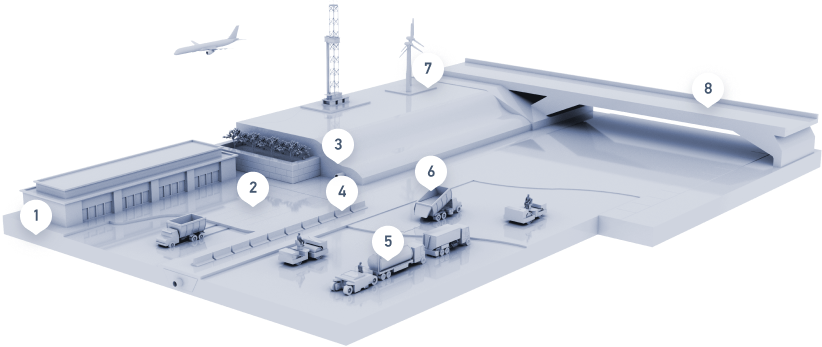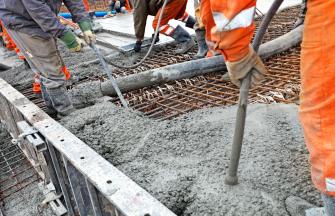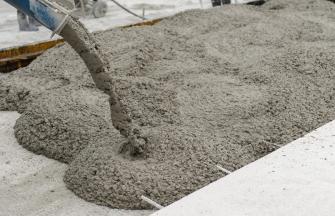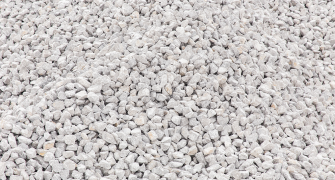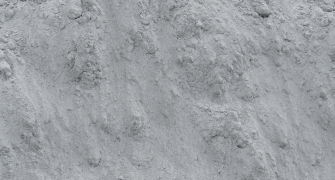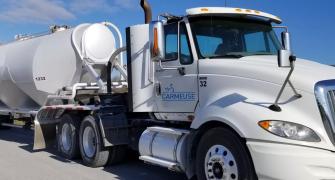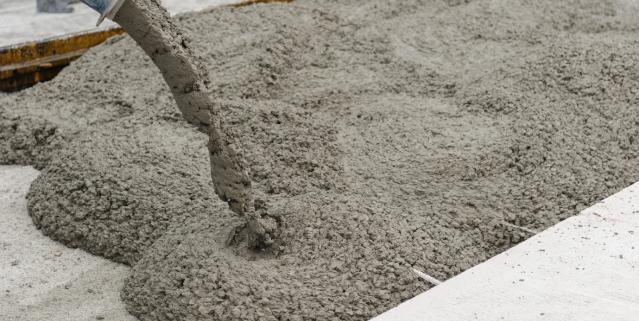
Do you have a question about this application? Ask our specialists
Contact us
The Process of Manufacturing Concrete
There are different types of concrete depending on the use case ranging from plane concrete to reinforced concrete containing steel bars or rods. The exact process can vary depending on the type of concrete being produced (e.g., ready-mix concrete, precast concrete, or on-site mixing) and the specific project requirements. However, all concrete at its base is created by mixing aggregates, cement, and water. The quality and proportions of these materials are carefully chosen to meet specific project requirements.
The dry ingredients are mixed together in precise proportions in a concrete mixer where water is added to create a uniform mixture. The cement and water combine to create a binder while the course and fine aggregates serve as a filler.
Once mixed, the resulting concrete blend is poured or molded into the desired form. The concrete mixture sets and hardens through a chemical process called hydration, where cement particles react with water. The concrete continues to gain strength over days, weeks, and even months.
Our Role in Concrete Manufacturing
What We Do
Carmeuse provides limestone-based products for the concrete manufacturing which play a critical role in determining the concrete's strength and workability. In this process, limestone is typically crushed into fine particles and incorporated into the concrete mix as an aggregate. Its use is twofold: first, it enhances the workability of the concrete, making it easier to mix, transport, and pour. Second, limestone's presence in the concrete mix improves its long-term performance by enhancing the material's compressive strength, reducing permeability, and increasing durability. As a cost-effective and sustainable resource, limestone aggregates make concrete production more affordable and environmentally friendly, ensuring the construction of resilient and long-lasting structures, from bridges and buildings to highways and sidewalks.
Carmeuse also provides PREMIACAL®, a ground calcium carbonate specifically engineered for concrete mixes which can offset the need for Portland cement by as much as 15%. In addition to the cost savings it can provide, it has many benefits including improving workability of the mix and accelerating the hydration reaction.
Areas along the Ohio River are serviced by Yager Materials, a member of the Carmeuse Group. Click here to visit their website for additional information. For all other areas, contact sales [at] yagermaterials.com (sales[at]yagermaterials[dot]com) or call 270-926-3611.
How it Helps
- Enhanced Workability – Limestone aggregates improve the workability of concrete mixes, making them easier to handle and mold during construction.
- Improved Compressive Strength – The use of limestone aggregates enhances the concrete's compressive strength, ensuring that the final structure is robust and durable.
- Reduced Permeability – Limestone aggregates help reduce the permeability of concrete, making it less susceptible to water penetration and damage from freeze-thaw cycles.
- Cost-Efficiency – Limestone aggregates are cost-effective and readily available, contributing to the affordability of concrete production.
- Consistency – Limestone aggregates offer consistency in concrete mixes, leading to uniformity in the final product's performance and appearance.
Supplying Lime for Various Applications
